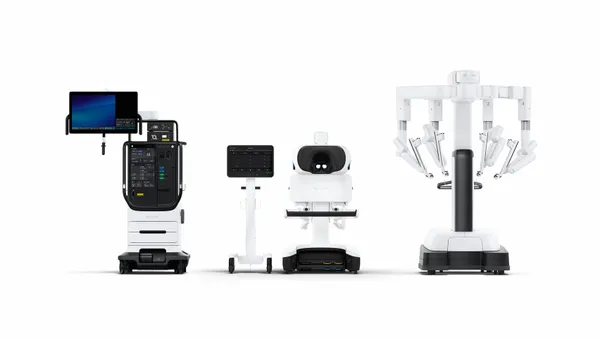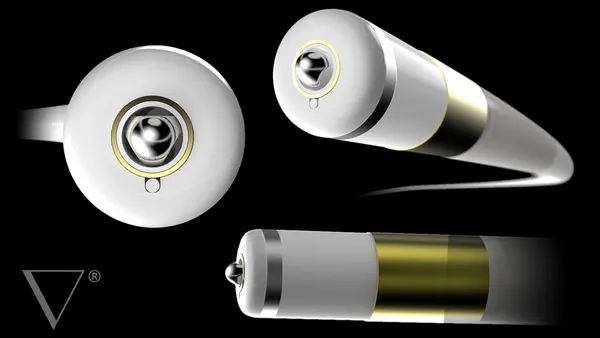Dive Brief:
- Medtronic abruptly pulled its HeartWare HVAD pump system from the market Thursday after a slew of Class I recalls and numerous reports of patient injuries and deaths associated with the device.
- The medtech cited ongoing device failures and "a growing body of observational clinical comparisons indicating a higher frequency of neurological adverse events, including stroke, and mortality with the HVAD System as compared to other circulatory support devices available to patients." Medtronic is establishing a program to support the approximately 4,000 patients that currently have the device implanted.
- The move follows a series of Class I recalls, including three in 2021 alone, resulting in reports of 91 injuries and 15 deaths related to the issues. FDA advised healthcare providers Thursday to stop new implants of the HeartWare system, stating that Medtronic has "received over 100 complaints involving delay or failure to restart of the HVAD pump, including reports of 14 patient deaths and 13 cases where an explant was necessary." The agency advised providers to use Abbott's HeartMate 3 Left Ventricular Assist System as an alternative.
Dive Insight:
Medtronic acquired the pump as part of its $1.1 billion acquisition of HeartWare International in 2016. The device helps patients suffering from heart failure pump blood through their bodies. The system, which includes an implantable pump and other non-implantable components, is a Class III medical device, meaning it is high risk and can pose a significant risk of injury.
Since the HeartWare system received premarket approval in November 2012, the FDA has issued 13 Class I recalls involving multiple parts and components of the pump. Issues and malfunctions have ranged from devices failing to restart to the company needing to update instructions for use and patient manuals.
While some recalls predate Medtronic's acquisition, nine Class I recalls have come since the medtech giant bought HeartWare.
Medtronic acknowledged in their Thursday announcement that other comparable devices had less frequency of patient risks, including stroke and death. The company also cited a specific malfunction where pumps would experience a delay or fail to restart after they were stopped.
"Considering these findings and the availability of alternative devices, Medtronic made the decision to stop the distribution and sale of the HVAD System," the company said in a statement.
The company advised against elective explants of the device due to potential health risks.
Medtronic is working with rival Abbott Laboratories to ensure that patients who need the pumps have alternative devices. The FDA advised physicians to use alternative devices in its Thursday notice, specifically referencing Abbott's.
Abbott released a statement Thursday confirming the company has enough capacity to support "the growing demand for mechanical circulatory support (MCS) devices" following Medtronic's decision to pull its product.
Medtronic's potential revenue loss from the decision was factored into fiscal year 2022 guidance, so no changes were needed for expected organic revenue growth, according to the company. The HVAD system and associated components brought in $141 million in revenue during Medtronic's fiscal year 2021.
However, according to J.P. Morgan, the system also accounted for about $80 million worth of losses. Along with patient safety risks and the availability of other devices, the analysts wrote that "with HVAD sales on the decline and the business no longer profitable ... the decision to discontinue was easier."
Along with numerous recalls, the HeartWare system has received thousands of reports of patient injuries, deaths and device malfunctions in the FDA's Manufacturer and User Facility Device Experience (MAUDE) database. An analysis of MAUDE data by the watchdog group ECRI showed Medtronic's pump had a higher rate of device malfunctions than comparable devices like Abbott's HeartMate II Left Ventricular Assist System and HeartMate 3.
Since 2012, when the HeartWare system received its PMA approval, device malfunction reports made up approximately 44% of the total MAUDE reports. Malfunction reports made up 15% of total reports since HeartMate II's PMA approval in 2008, and malfunctions made up 4% of reports since HeartMate 3's PMA approval in 2017.
MAUDE does have limitations as reports can be inaccurate, duplicative or injuries and deaths can be underreported.
Mike Argentieri, ECRI's vice president of technology and safety, said that the malfunction reports signal there may be larger issues with the device but MAUDE data itself is not enough to make that determination.
The rate of reported malfunctions has decreased since Medtronic acquired HeartWare.













